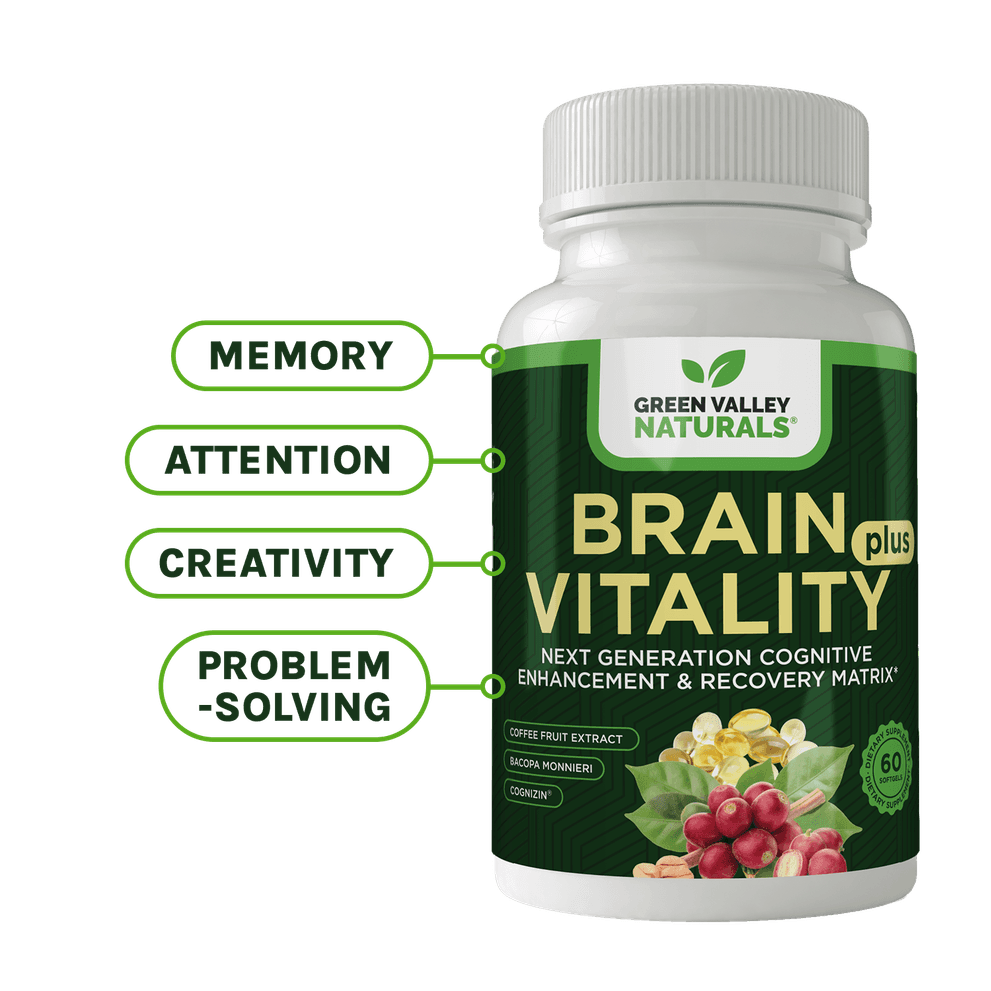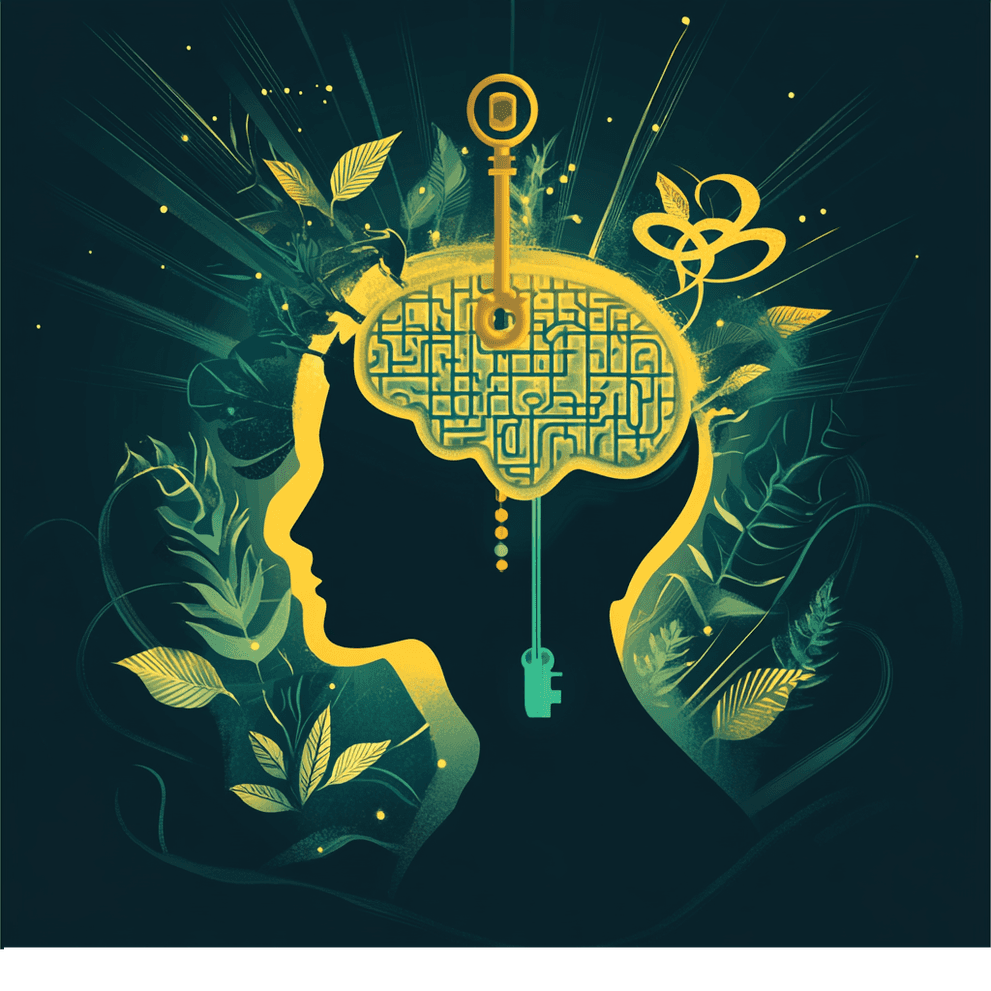
How to Focus: 10 Effective Strategies to Boost Your Concentration
Buzz... Ping... Scroll... Repeat...
In a world where distractions are a mere swipe or notification away, staying focused feels almost superhuman. Our brains are constantly bombarded with alerts, emails, breaking news, and endless noise — all designed to hijack our attention. No wonder it’s harder than ever to finish a project, read a book, or even have a real conversation. Lack of focus can pummel your career and shatter your confidence. You could blame it on
information overload6, or you can determine to conquer the chaos.
The good news? Focus isn’t a lost art, after all. It’s a skill. And like any skill, it can be trained, sharpened, and protected. Here’s how to reclaim your focus and attention (they're not the same) -- and your sanity -- in a world that’s constantly trying to steal it from you.
Key Takeaways
Focus and Concentration Are Distinct Skills – Focus is about directing your attention; concentration is about sustaining it. Both can be trained like muscles. Mental focus is essential for success. 10
Distractions—Internal and External—Can Be Managed – From digital clutter to emotional stress, recognizing your most common focus-zappers is the first step to regaining control.
Lifestyle Matters – Sleep, diet, exercise, mindfulness, and structured productivity systems all play a critical role in building stronger focus and avoiding burnout.
What Is Focus?
Staying on task can seem like a herculean feat that's particularly challenging in the face of today's ever-connected world of constant distractions. Yet becoming more mentally focused is achievable, though it's not necessarily quick and easy.
The terms focus and concentration are generally used interchangeably. But they actually refer to two distinct (but related) mental skills. Knowing the difference can help you improve both of them. A focused mind and the ability to concentrate are critical for success in life and career.
Focus is what you direct your attention toward. Think of focus as a spotlight. It shines on the one thing you need to accomplish now. Focus is all about choosing a target, be that a task, person, or goal. And then zeroing in intently on that one thing -- whether that's reading a book, listening to a podcast, or visualizing a goal. Focus is what you are mentally "locked onto." It's a lot like a mental muscle -- the more you work it, the stronger it becomes.
Concentration is how long you can maintain that focus. It's your ability to sustain attention on that chosen target without distraction. Concentration is about mental endurance, while resisting the impulse to drift, multitask... or head over to social media. Having strong concentration means you stay locked into that focus for minutes or hours, even when it's boring or challenging. Concentration is about staying tight with your focus over time. It's how you improve attention span.
With strong concentration, you might even get totally "in the zone" -- where work feels effortless and time is of no concern.
Understanding Distractions
Still, today's world offers a host of distractions, including electronics, social distractions, emotional distractions -- and even the very real distraction of multitasking. Understanding how to deal with them is crucial to your ability to focus and to achieve success in life.
Digital Distractions
Constant distractions, such as social media notifications, text messages, and phone calls can make it hard to stay focused and maintain concentration. That constant pinging and ringing is disruptive to concentration skills.
However, you can overcome these distractions by following strategies. When you're trying to achieve goals, leave your phone in a different room from your workspace whenever possible – perhaps in a locker or in your car. Not having its constant beck and call will increase processing speed and facilitate giving your full attention to the task at hand.
If you must have your phone with you, use the silencing and do not disturb functions, and set the phone as far from you physically as possible to stay more engaged with your work. If you keep it in your pocket, you'll still get distracted by the buzz of notifications.
You can also use full-screen mode to reduce interruptions, and organize your desk with only the materials you need for the task at hand and nothing more.
Social Distractions
Getting rid of social distractions at work or while studying is trickier, but can be done. When possible, try to find a quiet spot so you can focus. If you're studying in your bedroom, try putting a "Do Not Disturb" sign on your door to minimize distractions from the rest of the family.
At the office, close your door if possible. That'll help keep every Tom, Dick and Harry from constantly stopping "for a quick chat" – which rarely turns out to be quick. And if you're in the middle of writing an email, blog post, or other important matter, you may never return to the thought pattern you were in before the interruption.
Emotional Distractions
Not all distractions come from external sources. Some are internally driven, such as anxiety, feeling stressed, depression, worry, and poor motivation. Each of these can work against your ability to focus.
Practicing mindfulness can be valuable in reducing emotional distractions. Also, make sure you're sleeping sufficiently. Use positive thoughts and imagery to fight off anxiety and worry, to help in maintaining focus.

Multi-tasking: The Distraction Everyone Excuses
With information overload bombarding us, it's tempting to try to multitask in an effort to get it all done. But contrary to popular belief, multitasking makes you LESS productive, not more so. The brain isn't designed to concentrate fully on multiple tasks at the same time. So in reality, you're flitting back and forth from one task to the other... not getting any of them done efficiently.
Published research from the Journal of Experimental Psychology: Human Perception and Performance showed that multitasking decreased productivity significantly -- and caused an increase in errors.
In a case study reported by Stanford University, those employees who were encouraged to single-task experienced greater job satisfaction, improved work quality, and completed their tasks faster than their multitasking colleagues. 7
All of this puts multitasking smack into the same classification as other distractions. Determine to single-task only from now on.
Introduction to Brain Training
You can train your brain to focus better. It's called cognitive training, or brain training. Similar to training your muscles to lift weights at the gym, you can offer your brain training games that will affect how well you think and concentrate. The more you train it, the stronger it gets.
Cognitive training games can boost response times and attention. Brain training activities that can improve cognition include puzzles, memory games, sudoku, and chess.
To improve concentration and cognitive function, you need both focused attention and sustained attention. Brain training and mindfulness can both lead to significant improvements in concentration and the ability to focus.
A large study of 4,715 adults found that just 15 minutes per day (5 days per week) of brain training games improved concentration. Such training also boosts both working and short-term memory, processing speed, the ability to perform cognitive tasks, and problem-solving skills. 3
The Importance of Mindfulness to Focus
Mindfulness and meditation can boost attention and reduce succumbing to distractions, helping you stay focused and living in the present moment. It can promote better cognitive function, reduce your stress, and increase your ability to concentrate. Mindfulness helps you stay present, focused, and aware.
Deep breathing exercises and nature sounds can affect your ability to focus, and help you recover from a period of deep concentration. Of course, actual time in nature is even better than just listening to the sounds of nature. The American Psychological Association 4 says that spending time in nature can have benefits both physically and mentally. Experiments have found that time in nature improves working memory, cognition, and attentional control.
Mindfulness may also aid neuroplasticity, defined as the ability of the brain's neural networks to grow, change, and adapt throughout life.
Adding a Mindfulness Practice
Meditation doesn't mean you just sit in one spot silently with your eyes closed. To get started with mindfulness exercises, breathe deeply and evenly to boost focus and concentration. You might find guided mindfulness apps and videos helpful as a starting point. Create a gratitude list. Bring mindfulness into your daily activities. For example, eat, walk, and breathe intentionally and purposefully.
![[Inline illustration] The four quadrants of the Eisenhower Matrix (infographic)](https://assets.asana.biz/transform/30c95d26-15e1-4df1-9655-27b28186f0f2/inline-leadership-eisenhower-matrix-2-2x?io=transform:fill,width:2560&format=webp)
Productivity Hacks To Stay Focused
Looking for some practical tips to help you get or stay focused? We've got your back. There are many, some of which will work for you (and some may not).
1. Use Time Management Tricks
Set a timer. Known as the Pomodoro Technique, you work in highly focused 25-minute increments, then take a short break, a 5-minute break. To improve productivity even more, get some type of physical exercise during your break times, such as a short walk, jumping jacks, or jumping on a trampoline. The Pomodoro method can lead to superior performance and productivity.
Time blocking. When you make your to-do list, you also book a time on your calendar when you'll do that project or activity. It can help you complete tasks, and acts as a signal to others (i.e., distracting people) that you are busy... or that you can't attend a meeting at that time.
2-List strategy. Used by Warren Buffett, this involves writing a list of your 25 biggest goals. Once you've done that, go back through the list and circle the "Top 5" of those 25. That becomes your "A" list. They are the ones you completely dedicate yourself to until you've completed every one of those 5. No cheating and bouncing back to any of the 20 on the "B" list.
2. Set Priorities
Since a long to-do list can feel overwhelming and become a distraction of its own, the Eisenhower matrix can help you set priorities and figure out how to spend your time and what to do next. It distinguishes between urgent and non-urgent tasks, and important vs. non-important tasks.
In the upper left of the matrix are tasks that are both urgent and important, meaning you should do those now. By contrast, the lower right corner represents tasks that are neither important nor urgent, and should be deleted as they’re mere distractions. Social media might fit here unless it’s part of your job description.
Urgent but unimportant tasks are things that don’t demand your skill set and though important, can often be delegated. Important but non-urgent tasks, such as job training or continuing education, must be done by you, are important for your future success, and can easily get postponed ad nauseam if you don't put them on your calendar and do them.
Prioritizing tasks, eliminating non-essential ones, and knowing the difference can help you stay focused and get the most important and urgent things done.
Breaking down large tasks into small, manageable chunks reduces stress and boosts focus. Let’s say you know you have finals in two weeks. Now’s the time to spend talking to and getting help from your teachers/professors if needed. Develop a plan... divide the textbook chapters or notes to review into daily chunks. Research potential essay questions. This will help you cover your review, reveal what you might need extra help with, and avoid the temptation of multitasking and all-nighters (both of which are very counter-productive). It’ll also reduce your stress and boost your confidence so you’re not distracted by anxiety.
Of course, as you’re working on that long-term work or school project or preparation for finals or an interview, remember to practice the Pomodoro method and give your brain regular rest breaks.
3. Set Goals
One of the keys to productivity that affects success is to set goals. Here are some valuable tips to help you improve in goal setting and goal achievement.
Set specific, achievable goals that can be measured, such as the SMART goal framework, which helps you create a clear plan and stay on track to achieve them. Break large goals and tasks into small, manageable chunks. Decide which goals are the most urgent and most important, and make them high priority.
Use productivity tools, such as planners (written or digital, but written helps cement things in your brain better), and to-do lists to stay organized and get more done.
Take regular short breaks as outlined in the Pomodoro method to improve focus, performance, and productivity. These short breaks help you recharge. Physical activity during your breaks boosts their benefits.

4. Get The Right Nutrition
Eating brain-healthy foods can improve cognition, focus, and concentration. It also helps reduce stress and improve mood. A Mediterranean diet is a great starting place. Eat real foods rich in omega-3 fatty acids, such as nuts, seeds, fruits, and vegetables, along with proteins such as fatty fish.
Hydration is also critical to brain health and performance, focus and concentration. Dehydration leads to poor mental performance and brain fog, among a host of other problems.
5. Improve Your Sleep
A well-rested brain is a brain that's able to focus. People used to brag about lack of sleep, as if staying up half the night crowned them with success. That myth has been laid to rest. It's now recognized as a recipe for disaster, making it nearly impossible to stay alert and stay on task. Enough sleep improves focus and concentration, reduces stress, and boosts mood. 9
For better sleep, establish a consistent sleep schedule. Create a relaxing bedtime routine. Avoid caffeine, alcohol, and electronics before bedtime to boost sleep quality. It’ll make you more successful in life.
6. Exercise
A sedentary lifestyle and maximum focus are mutually exclusive.
Regular aerobic exercise helps improve focus and concentration, as well as reducing stress and improving mood. It delivers more oxygen to the brain, which improves thinking. Make physical activity such as walking, jogging, or swimming an integral part of your daily routine.
Exercise when you're taking your mental break. Go for a walk around the block, or jump on a mini-trampoline. Exercising during your mental breaks can magnify the benefit of the brain break.
A 2018 study of fifth graders found that daily physical exercise boosted concentration and attention within just four weeks. 1 But it's not just for kids! A 2020 study found that older adults who got regular physical activity showed less evidence of cognitive decline compared to adults who were more sedentary. 2
7. Avoid Burnout
Sometimes your brain may refuse to focus because it's just plain tired! For example, you've been working on a project for the past three hours and you now find your mind wandering endlessly. Time for a break!
Regular breaks can give your mind a little respite. Use the Pomodoro technique of focusing hard for 25 minutes, then taking a 5-minute break. Even better if you can get a bit of physical exercise to round out all that brain exercise. 7 For example, jump for 5 minutes on a trampoline or walk around the block. Being in nature helps keep the brain engaged, so outside is better than inside whenever possible.
Another sure path to burnout is trying to do everything at once. Multitasking does you no favors. Prioritizing tasks and setting realistic goals can help you manage stress and boost concentration.
Relaxation techniques such as deep breathing and meditation can help you avoid burnout, reduce stress, and improve focus.
8. Maintain Your Motivation
When you strengthen your brain and develop better focus, you'll start experiencing some productivity "wins." Celebrate every small win, every achievement. Each win triggers dopamine release, reinforcing motivation. It can help you stay motivated, which leads to success. 8
Another way to stay motivated is to use positive self-talk and repeat positive affirmations out loud.
For some people, those regularly-inserted 5-minute breaks in your schedule can give you the energy to keep on keeping on.
If you need rewards and incentives, incorporate them into your goal-setting to stay motivated. Using rewards and incentives for your children to succeed in school is worth the energy of setting it up, especially if they're struggling with focus in school.
9. Identify Obstacles
Always be aware of obstacles that obstruct you achieving your goals. Which ones are traps for you personally?
Identify and eliminate the distractions that most deflect your ability to focus -- whether it's a poor diet, lack of sleep, clutter, anxiety, disorganization, or sedentary lifestyle -- address the issue today. It’ll serve you well for the rest of your life.
Mindfulness and meditation can help you overcome obstacles and stay focused. Physical activity is a "must" for everyone who wants to focus and accomplish their goals.
10. Choose The Right Supplements
If you’re noticing brain fog, memory lapses, mental fatigue, or trouble focusing, then your brain may be sending a message: it’s time for targeted support. Top focus-boosting supplements that have been validated in clinical study include:
Bacopa Monnieri: An ancient herb that boosts memory recall and reduces anxiety by enhancing brain signaling and protecting neurons from oxidative stress.
Citicoline (CDP-Choline): A nutrient fuels brain cell membranes and increases acetylcholine, a key neurotransmitter for learning and focus.
L-Theanine: An amino acid that promotes calm, focused alertness without drowsiness by increasing alpha brain waves — ideal for stress-induced brain drain.
Lion’s Mane Mushroom: A powerful nutrient-rich mushroom that stimulates nerve growth factor (NGF), which supports new brain cell formation and cognitive longevity.
Omega-3 Fatty Acids (especially DHA): These fatty acids are essential for brain structure, communication between neurons, and reducing age-related cognitive decline.
Green Valley Naturals simplifies brain support with blended formulas like Brain Vitality Plus and Maximum Memory Support, which combine science-backed ingredients into one convenient daily supplement — designed for better absorption and real cognitive results. These blends don’t just target symptoms — they nourish your brain for sharper thinking, better memory, and long-term cognitive resilience.
Summary
Focus isn’t magic—it’s a muscle. By mastering ten targeted strategies, you can direct your attention (focus) and sustain it (concentration) amid today's distractions. This guide walks you through identifying digital, social, and emotional blockers; using systems like Pomodoro, Eisenhower Matrix, and time blocking; lifestyle tweaks like better sleep, nutrition, exercise, and mindfulness; and brain-training exercises. With consistent effort, you can strengthen your mental endurance and perform at your best, even in a chaotic world.
Frequently Asked Questions
Why am I lacking focus?
One reason you may not be able to focus is that you've never trained your brain to focus. Your brain is a muscle, and like other muscles, you can't expect to just show up and lift 300 pounds with no training. Similarly, you shouldn't expect yourself to focus if you've never trained your brain to focus. An untrained brain is lazy instead of strong. To improve focusing skills, do things that require focus so you learn to ignore distractions. Challenge your brain with sudoku, crossword and jigsaw puzzles, chess, word searches, and memory games.
How do I focus with ADHD?
-
Believe it or not, there are focus tips designed specifically for people with ADHD 5. Many involve moving your body while focusing on a task — such as walking or jogging, swiveling in a chair, pacing, fidgeting, standing up. You can also try using fidget toys, playing with your hair, tap or drum your fingers (just not in class), knit, pet an animal.
Sight strategies might include colorful tools such as bright highlighters or pens, looking out the window, watching the flame in a fireplace. Try listening to something while reading or talking, such as classical music or rhythmic beats, or whistle, hum, sing, or talk to yourself. Perhaps write a short summary of what you learned in a meeting or in class.
Some people like to chew gum, suck on hard candy, or drink bubbly seltzer to get better focus on reading, listening, and working.
Obviously a fidget should be appropriate for the situation and respectful of those around you. A good fidget will not distract other people around you.
Mindfulness can also be a brilliant strategy for a person with ADHD.
Is there a natural way to increase focus?
Sure, there are many natural ways to increase focus. Get more sleep. Eat a Mediterranean diet rich in real foods with names you can pronounce. Stay hydrated. Get 30 minutes of exercise per day, preferably outside. Practice mindfulness. Take short breaks after intense concentration. Use brain-boosting supplements including Lion’s Mane Mushroom, Citicoline, Bacopa Monnieri, L-Theanine (found in green tea), and Omega-3 fatty acids. Or blended supplements such as Brain Vitality Plus or Maximum Memory Support, by Green Valley Naturals.
What to eat to boost your brain?
Eating real, whole foods that come from the ground, the ocean, or an animal are the foods that boost your brain the best. Omega-3s are powerful brain food. They help your brain stay on task by providing the nutrients your brain needs to function, think, and focus well. This in turn lets your brain turn off or ignore the many distractions that are ever-presently waiting to hijack your goals and productivity.
1 Impact of Coordinated-Bilateral Physical Activities on Attention and Concentration in School-Aged Children. https://onlinelibrary.wiley.com/doi/10.1155/2018/2539748
2 Cross-sectional association between physical activity level and subjective cognitive decline among US adults aged ≥45 years, 2015. https://www.sciencedirect.com/science/article/abs/pii/S0091743520303030
3 How to Improve Concentration: 14 Tips to Improve Your Concentration. Healthline. Updated Nov. 12, 2024. https://www.healthline.com/health/mental-health/how-to-improve-concentration#exercise
4 Nurtured by Nature, American Psychological Association. https://www.apa.org/monitor/2020/04/nurtured-nature
5 Focusing in Class and During Study. Baldwin Center for Learning and Teaching. https://www.bowdoin.edu/baldwin-center/for-students/learning-strategies/focus-class-and-study.html
6 Tips to Improve Concentration: Mindfulness, Cognitive Training, and a Healthy Lifestyle May Help Sharpen Your Focus. Harvard Health Publishing, Nov. 20, 2023. https://www.health.harvard.edu/mind-and-mood/tips-to-improve-concentration
7 Proven Methods of Improving Focus and Concentration. Spencer Institute. July 29, 2023. https://spencerinstitute.com/proven-methods-of-improving-focus-and-concentration/
8 How to Improve Concentration and Focus – Our 15 Best Tips. BetterUp. March 18, 2025. https://www.betterup.com/blog/15-ways-to-improve-your-focus-and-concentration-skills
9 13 Top Tips for Improving Focus and Attention Span. Post University. June 23, 2023. https://post.edu/blog/tips-for-improving-focus-and-attention-span/
10 7 Tips for Becoming More Mentally Focused. VeryWellMind. August 14, 2023. https://www.verywellmind.com/things-you-can-do-to-improve-your-mental-focus-4115389




